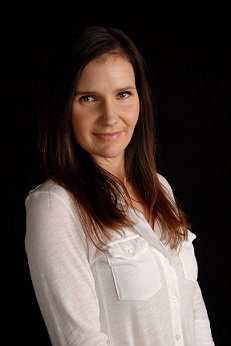Suzanne Hood Bio
If you are looking for local services or treatment from your Local Physiotherapist in the office or hospital from a Physiotherapist, contact a provider such as ( Suzanne Hood ) to inquire if they are accepting patients or you need a referral. Phone number to book an appointment 604 730-9478 ( Suzanne Hood ) is in good standing with the Physiotherapy Association of Canada
The speaker in the video may have no association with ( Suzanne Hood, Physiotherapist Vancouver, BC ).
( Suzanne Hood, Physiotherapist Vancouver, BC ), may talk about some of the conditions and some of the treatment options shown on the videos.
Yes, it is always important to discuss the information you have learned from videos or any other source with your local physiotherapist. They are trained professionals who can provide personalized advice and guidance based on your specific condition or disease.
The techniques mentioned, such as musculoskeletal ultrasound, rehabilitative ultrasound, manual therapy, exercise, and PRP, are commonly used by physiotherapists in the treatment of various conditions. However, the suitability of these techniques for your particular situation can only be determined by a thorough assessment and consultation with your physiotherapist.
In the case of sleep apnea treatment, it often involves a multidisciplinary approach. Along with your physiotherapist, you may also work with a physician, sleep specialist, otolaryngologist (ear, nose, and throat doctor), and/or a CPAP specialist. Each of these professionals plays a role in evaluating and managing sleep apnea to provide you with the most appropriate treatment options.
Regarding maintaining a healthy weight, it is indeed important for overall health and can have a positive impact on various conditions. Your physiotherapist can provide guidance on exercises and activities that can help with weight management, taking into consideration your specific needs and any physical limitations you may have. They may also recommend consulting with a nutritionist or dietitian for a heart-healthy diet plan tailored to your requirements.
Remember, your local physiotherapist is the best person to provide you with accurate information and guidance based on their expertise and your individual circumstances.
Sciatic pain or sciatica is a common symptom rather than a specific diagnosis. It refers to pain that radiates along the path of the sciatic nerve, which runs from the lower back down through the buttocks and into the legs. This pain can vary in intensity and location, but it typically affects one side of the body.
The sciatic nerve can be irritated or compressed due to various underlying causes. Some common reasons for sciatic pain include:
-
Lumbar disc herniation: When the gel-like material inside a spinal disc protrudes or leaks out and presses on the nerve roots, it can cause sciatic pain.
-
Spinal stenosis: This condition involves the narrowing of the spinal canal, which can put pressure on the sciatic nerve roots.
-
Piriformis syndrome: The piriformis muscle, located in the buttock region, can sometimes irritate or compress the sciatic nerve, resulting in similar symptoms to sciatica.
-
Spondylolisthesis: This occurs when a vertebra slips out of place and puts pressure on the nerve roots that make up the sciatic nerve.
-
Muscle imbalances or tightness: Issues such as muscle imbalances, poor posture, or tightness in the muscles surrounding the spine and pelvis can contribute to sciatic pain.
-
Trauma or injury: Accidents or injuries that affect the lower back or buttocks can lead to sciatic pain.
It's crucial to consult a physiotherapist or healthcare professional for a thorough assessment when experiencing sciatic pain. They will evaluate your symptoms, perform physical examinations, and may request imaging tests to identify the specific cause of your pain. Based on the findings, an appropriate treatment plan can be developed, which may include exercises, manual therapy, pain management techniques, and lifestyle modifications.
Remember, each case of sciatic pain is unique, and the treatment approach may vary depending on the underlying cause. A professional assessment will help determine the most effective strategies to alleviate pain, promote healing, and prevent future episodes.
Please contact ( Suzanne Hood, Physiotherapist Vancouver, BC ) to enquire if this health care provider is accepting new patients.
( Suzanne Hood ) could very well be associated with any one of numerous Associations like the Canadian Physiotherapy Association, BC Physiotherapy Association, Ontario Physiotherapy Association, Alberta Physiotherapy Association, Manitoba Physiotherapy Association, Nova Scotia Physiotherapy Association, PEI Physiotherapy Association, Association québécoise de la physiothérapie, New Brunswick Physiotherapy Association
Related Topics
If you are the practitioner featured on this page and would like to either update the current information or claim the page please take advantage of our patient and physician resources here.
If on the other hand you would like to be removed for whatever reason from the directory please click here.
This content is for informational purposes only, and is not intended to be a substitute for professional medical advice, diagnosis or treatment. Always seek the advice of your physician or other qualified healthcare professional with any questions you may have regarding a medical condition.


